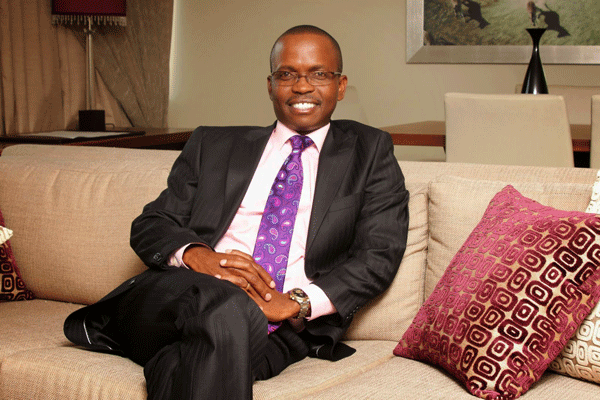
BUSINESSMAN Shingi Munyeza says real capital will flow into the country once Zimbabwe has proved its willingness to uphold the rule of law, which will be tested in next year’s harmonised elections.
BY FIDELITY MHLANGA
Munyeza, yesterday told delegates at a breakfast meeting held in Harare jointly by the Institute of Chartered Accountants of Zimbabwe and Alpha Media Holdings, that the country would experience some level of economic reforms, although these are going to be limited because of certain market forces.
“We are going to see some level of economic reforms taking place, but they are going to be limited because of certain market forces as certain interests will not be touched. What we see in the budget is some level or desire to have some reforms and that must be taken seriously and I hope it will happen,” he said.
Munyeza said the rule of law has to be redefined in Zimbabwe, simply because there are elections that have been contested before.
“But there are certain fundamentals that need to be done. Number one is that, we need to have elections. The real money will come when we have dealt with that big issue that is the rule of law. The rule of law has everything to do with capital at the end of the day. The rule of law has to be redefined in Zimbabwe simply because we have elections that have been contested before. This is going to cause more of an economic problem,” he said.
The businessman said Zimbabwe has moved a step further by removing former President Robert Mugabe, adding that his successor President Emmerson Mnangagwa has the political will to move the country forward, although he could not do it alone.
“The convergence that we saw on November 18 was not because we were in agreement in philosophy. We were in agreement because, for once, we were now in a mutually hurting stalemate and that affected all our interests. The first hurdle was to make sure that the principal or chief executive officer (Mugabe) of the country, who had got us that far be removed,” he said.
- Chamisa under fire over US$120K donation
- Mavhunga puts DeMbare into Chibuku quarterfinals
- Pension funds bet on Cabora Bassa oilfields
- Councils defy govt fire tender directive
Keep Reading
Industrialist Callisto Jokonya, said the 2018 budget set the tone for economic recovery as the liquidity challenges and corruption prevailing in the country are to be tackled head-on, as well as ensuring efficient civil servant with customer focused attitude.
“I am very positive about the economy. We are coming from zero. We have never had the budget for the past years. It was prepared, but no follow up was being done on the pronouncements. There is still a deficit, but he tried to narrow it down and ensure the President will support how to lower the deficit because there is a link between the President’s vision and that of the minister,” he said.
Jokonya said the budget stimulates and incentivises good behaviour and focused on rebalancing income and expenditure, thereby, targeting gross domestic product growth in 2018 of 4,5%.
He added that the revision of the Indigenisation Act would attract foreign direct investment, as foreigners could own 100% of their investments except in the diamond and platinum mining sector.
Another panellist, economist Vince Museve said there was no reason why the country should have a paltry budget, when it was endowed with vast resources.
“We have reserves and assets which are in the region of $15 trillion, I don’t see the reason why we should have a budget of $5 billion. Our lithium is worth $100 billion at today’s prices. We can sell 20% of that and get $20 billion today. So the imagination of our government is because we are coming from a poverty cycle and we are not thinking big enough,” he said.











